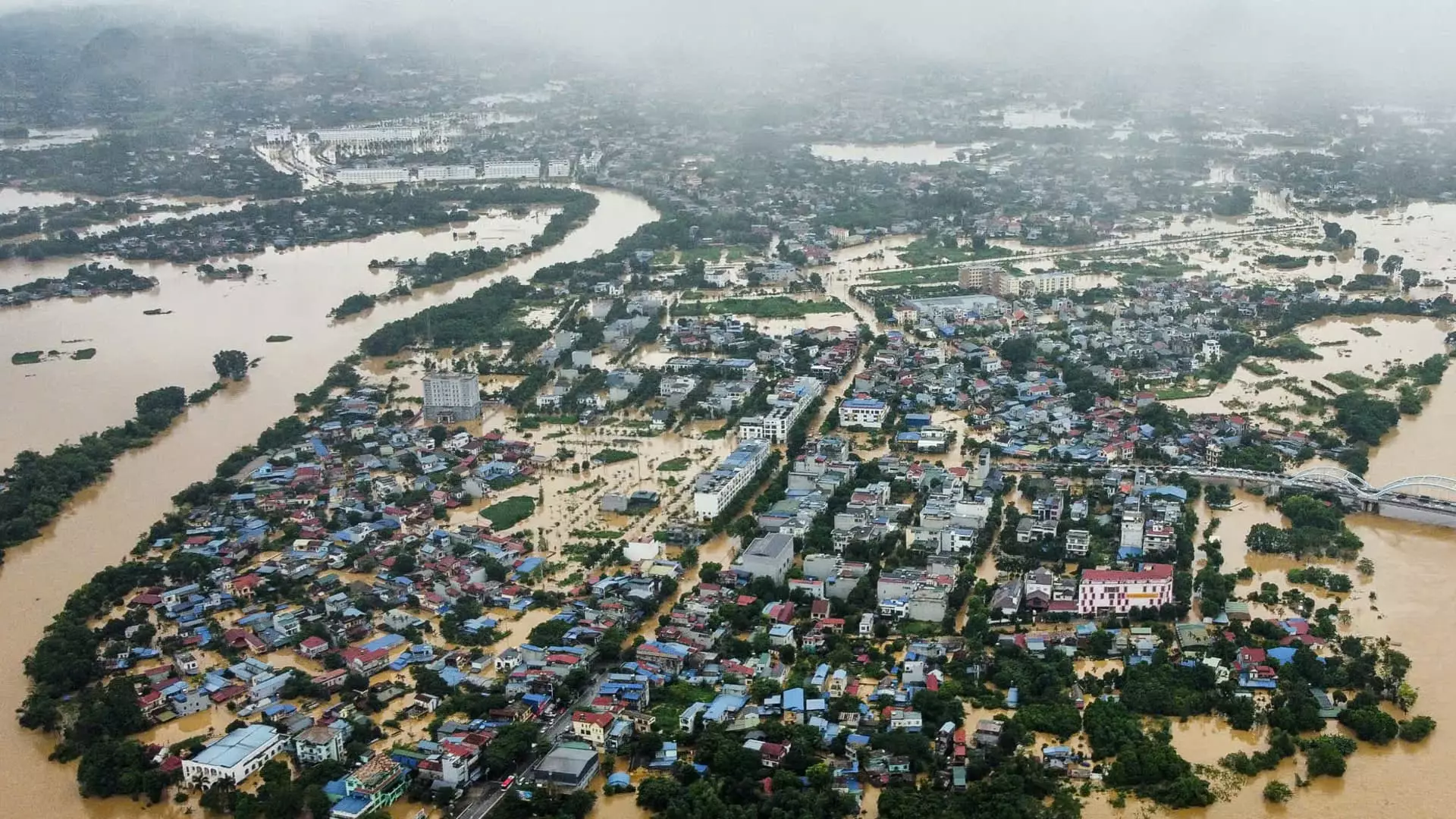As 2024 draws to a close, the Indo-Pacific region emerges from a year that many would prefer to forget, marked by a convergence of economic uncertainty and climatic disasters. Yet amidst these challenges, there is a flicker of hope and resilience. This article delves into the successes and setbacks faced by nations in Asia and the Pacific, examining the varied trajectories of development, democracy, and culture throughout this tumultuous year.
The impact of climate change was acutely felt across the Indo-Pacific in 2024, with natural disasters wreaking havoc in countries that were already grappling with economic difficulties. Super Typhoon Yagi, which struck in November, cut a swath of destruction through Southeast Asia. The storm caused extensive loss of life, displacing countless people and disrupting entire communities in the Philippines, southern China, Vietnam, and beyond. Flooding from monsoon rains compounded the suffering, particularly in Afghanistan, Bangladesh, and Pakistan, resulting in hundreds of fatalities and leaving millions in dire conditions.
These extreme weather events have unfortunately become alarmingly routine, raising an unsettling question: have we collectively become desensitized to the plight of so many? The mounting “climate casualties” in Asia paint a grim picture that continues to unfold with alarming seriousness. With increasing frequency of natural disasters, the region seems to be locked in a cycle where victims are often overlooked and forgotten.
Simultaneously, East Asia has been grappling with a demographic crisis, where record-low fertility rates are raising alarms across major economies including South Korea, China, and Japan. For aspiring grandparents, the year offered little in terms of new beginnings as women increasingly choose to forgo motherhood. Factors such as shifting social norms, work demands, and soaring living costs have collectively contributed to this trend.
The societal implications are profound, revealing a demographic shift that will continue to challenge the foundations of these economies. By the end of 2024, South Korea was officially recognized as a “super-aged” society. The ramifications of having an aging population alongside a shrinking workforce herald significant changes in economic productivity and social structure, making this silent crisis a focal point for policymakers.
The political atmosphere across the region has been equally complex. While some leaders faced triumphs, others stumbled under the pressure of public unrest. Electoral maneuvers defined 2024 in many nations, notably in South Korea, where President Yoon Suk-Yeol declared martial law amid widespread backlash following significant losses in general elections. This sparked a constitutional battle that revealed the turbulent state of democracy within the nation.
In sharp contrast, Taiwan celebrated a vibrant democratic process, solidifying its commitment to political plurality. Meanwhile, in India, Prime Minister Narendra Modi faced a coalition government that underscored the evolving dynamics of Indian politics. Across the ocean, Indonesia witnessed the peaceful transition of power to former General Prabowo Subianto, which highlighted hope amid the political turmoil that characterized the broader region.
Despite the challenges, 2024 marked a remarkable year for South Korean cultural exports, collectively known as Hallyu or the Korean Wave. This phenomenon continued to captivate global audiences, with an impressive surge in K-dramas and K-pop turning South Korea into a soft power powerhouse.
Titles like “Queen of Tears” demonstrated the international appeal of Korean storytelling, racking up an astonishing number of viewing hours on platforms like Netflix. This surge in Korean culture not only bolstered national pride but also had significant economic implications. Estimates project that Hallyu will contribute nearly $200 billion to the South Korean economy by 2030, illustrating the profound effect cultural exports can have on international perception and economic growth.
As we reflect on the challenges and successes in the Indo-Pacific during 2024, it becomes clear that the region is at a crossroads. The repercussions of climate change, demographic shifts, and political upheavals will shape the social, economic, and political landscape for years to come.
However, the enduring spirit of resilience and the creative vibrancy displayed through cultural advancements serve as reminders that adversity can also give rise to innovation and solidarity. In the face of daunting challenges, the optimism for a brighter future persists, leaving room for hope amid uncertainty in this dynamic region.


Leave a Reply